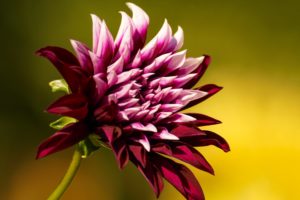
IBS sufferers typically experience symptoms such as stomach cramps, bloating, constipation and loose stools. In TCM, this is due to three pathogenic conditions in varying proportions: “Liver qi stagnation”, “Spleen/stomach qi deficiency” and “Dampness”.
In TCM most digestive functions, including those of the pancreas, come under the realm of the spleen and stomach; TCM’s “spleen” is not the same as the spleen organ in western medicine. The intestines are also included in the spleen’s function. Alongside stomach and spleen, TCM’s liver also plays a significant role.
The relationship between these organs is important to normal digestive function. The spleen raises qi and the stomach descends qi; this qi dynamic is central to the general movement and distribution of qi throughout the body.
The liver is important in the maintenance of the correct functioning of this qi mechanism too. Stress, which stagnates Liver qi, or any weakness in the spleen/stomach qi, quickly affects the normal functioning of the digestive system.
Causes of TCM organ problems are multifaceted.
Overwork or excessive worry, alongside irregular eating habits or a lack of physical activity, can all weaken the spleen. Diet can trigger weakness in the stomach and spleen too. Eating lots of cold raw food introduces cold into the stomach and weakens spleen qi. Both under and overeating also weaken these organs. Eating at irregular times, missing meals, or eating late also impact spleen and stomach. Eating too much rich greasy food causes an accumulation of dampness in the intestines. Eating excessive quantities of heating foods, such as chilies, coffee, spirits, spices, fats, and meat can introduce heat and dampness as well.
Emotional stress is a significance cause of IBS. Frustration, resentment, repressed emotions, and stress stagnate qi. Eating when stressed or upset makes the spleen and stomach vulnerable to the invasion of pent-up liver qi. As qi stagnation builds, it starts to “invade spleen and stomach”.
Spleen qi deficiency type IBS: a weakened spleen makes it unable to process and extract all the nutrition from food, leaving a residue of unprocessed food, which sinks into the intestines and triggers diarrhoea. Spleen weakness leaves it vulnerable to liver qi stagnation, or the production of excess dampness. Symptoms include chronic loose stools or diarrhoea, which are worse when tired, or after eating raw or greasy food. There will also be bloating and pain which improves with warmth.
Herbs known for spleen strengthening and drying damp are included in the treatment. Ginseng, Chinese yam, honey fried liquorice, lotus seed, job’s tears and cardamon are frequently used.
Liver and spleen disharmony is a combination of tension in the intestines and digestive weakness. The IBS tends to be worse with stress. Bloating, cramping abdominal pain, alternating loose stools and constipation, with irritability and depression, are all common symptoms.
Another possible TCM diagnosis for IBS is Phlegm-Dampness; caused by eating too much dairy, sugar or rich greasy foods, especially in someone already suffering with spleen deficiency. Phlegm-Dampness is a substantial pathogen, which blocks the qi dynamic leading to persistent epigastric pain and discomfort. Typical symptoms include a feeling of blockage in the stomach, bloating, fatigue, lethargy, tiredness with a general feeling of heaviness in the head and body. Poor appetite, loss of sense of taste, nausea, dizziness and headaches are common too. Herbal treatment aims to dry and transform Phlegm-Dampness, restore the qi dynamic and harmonise the stomach. Typical herbs include Cardamon, Magnolia bark, citrus peel, liquorice and fresh ginger.
Liver qi stagnation disrupts the digestion’s qi dynamic. This problem is common in stressed people with sedentary occupations. Typical symptoms for IBS in these cases include constipation, poor appetite, painful abdominal bloating, tightness in the chest, ribs, neck and upper back alongside irritability and moodiness. For this type of IBS, herbal prescriptions include herbs to encourage the downward movement of qi, soften the liver and reduce intestinal cramping. Herbs such as white peony root, “Buddha’s Hand” and gardenia fruit might be included in the prescription.
Acupuncture treatment for IBS
Each of the IBS TCM conditions respond well to acupuncture treatment, especially when used alongside the herbal medicine. Acupuncture points are chosen to help strengthen the digestive system alongside dispersing any of the accumulated qi stagnation or other pathogens such as dampness. Warming treatments including moxibustion and heat lamps are also helpful, especially if cold is part of the diagnosis.
At the Jade Centre we see many patients each year to help them to manage their irritable bowel syndrome. Contact us now and book an appointment to get the support you need,

